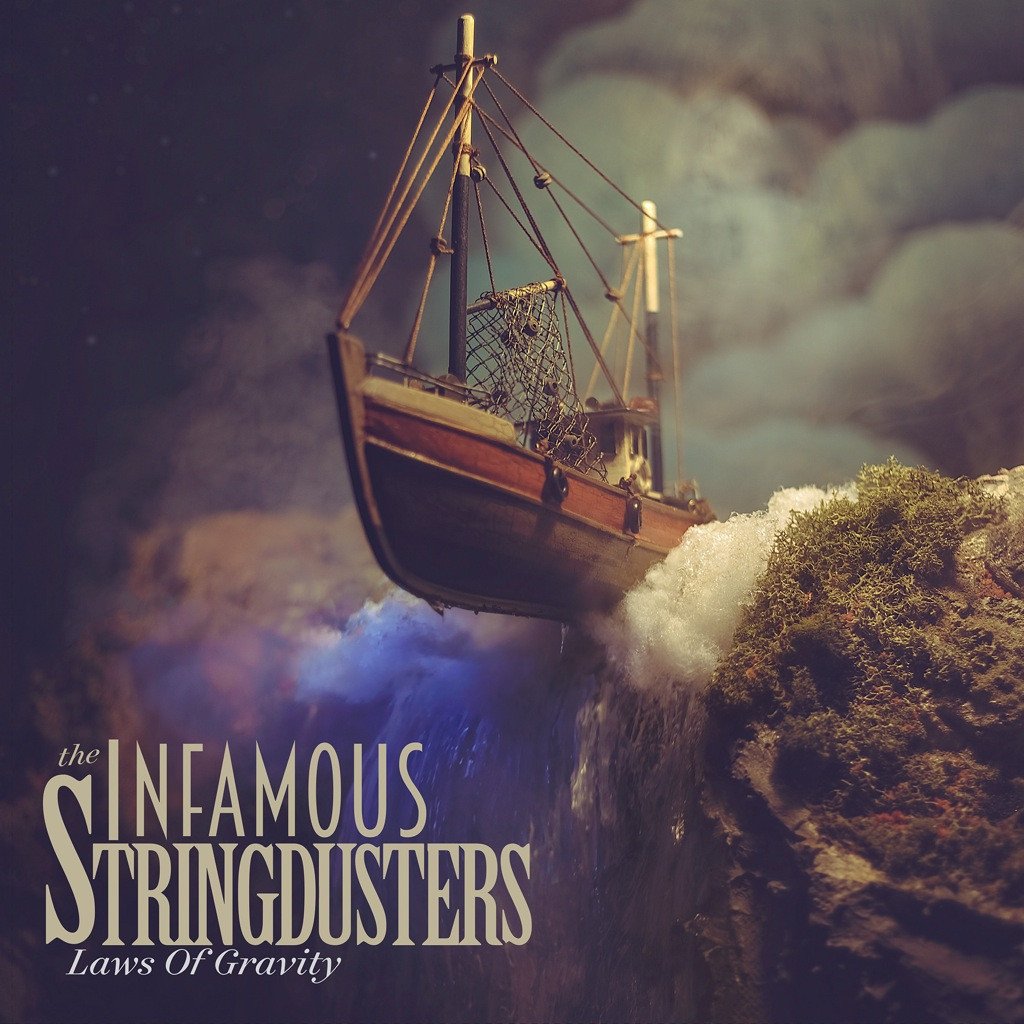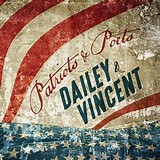Rating: 8.5/10
Dori Freeman was one of the coolest discoveries of 2016 for me, coming from out of nowhere and making an absolutely killer debut album. Bringing an Appalachian sound to her brand of country, she displayed a unique talent for taking the traditional and timeless and keeping it forward-thinking and fresh. And not just traditional country either, but vintage pop, bluegrass, and folk as well, proving that the best artists aren’t trapped by genre lines but simply write and perform material that suits them and their individual talents.
Read: Album Review: Dori Freeman Impresses With Her Self-Titled Debut
It seems one of Dori’s talents is a knack for simplicity, and another is instinctively knowing what works for her. IN fact, this record literally feels like a continuation of that first project, and that’s not a bad thing at all. It doesn’t feel like leftovers from the first record or seem as if it’s lacking something new to expand Dori’s sound; rather, it’s like a comforting reminder that Dori Freeman is going to be an artist you can count on for quality music. She’s still mixing up the styles, still singing a lot about love, and even has another a cappella tune on this album in the cover of “Ern & Zorry’s Sneakin’ Bitin’ Dog,” an old Appalachian song written by her grandfather. So yeah, it’s literally not breaking any new ground, but when something was flawless the first time, why deviate from it?
As mentioned, love is certainly a prevailing theme running through this record. Sometimes, it comes from a place of sheer contentment. “If I Could Make You My own” is sweet and simple in its delivery, and sung by anyone else, the poetic lyrics might come across as sappy and overdone, but Freeman exudes a sincerity that just makes it work to perfection. The same goes for “Turtle Dove.” This one leans more toward that folk/vintage pop style than the former, more traditional country song, and again, it’s delivered with such sincerity that you can’t help but believe the sentiments Dori is expressing.
But more often than not, we’re dealing with the darker sides of love and relationships. “Lovers on the Run” confronts men who make excuses for walking away because they can’t commit, asserting that one day, they will be lonely. This one feels a bit like “Go on Lovin'” from her debut album, but this is told in a more general sense rather than addressed to a specific person. “Just Say it Now” finds Dori confronting the impending end of a relationship and saying that she’s about to be back where she was before it began, “wondering what men are ever looking for.”
And then we have the stunning pair of songs, “That’s all Right” and “Cold Waves.” The former sees Freeman in an abusive relationship with an alcoholic; “you’re passing out, and I’m turning blue.” That natural thing in her voice which sells the sap on “Turtledove” also captures the desperation and heartbreak perfectly here. But despite that, she sings from a place of defiance as she tells the man, “You’ll be the only one whose cross you cannot bear” and looks ahead to when she won’t be with him anymore. She does eventually move on, as conveyed on the album’s crown jewel, “Cold Waves.” This is where the album all comes together, as she’s found a new love, presumably the one from “Turtle Dove,” but the previous abuse still haunts her every day. This is a fantastic song, describing the ongoing pain that she must deal with for the rest of her life as “cold waves” and “blue haze” that surrounds her and makes it hard to push through on some days. Though she is now happy, she will always carry this around with her like a weight, and she prays that her daughter will never know this type of heartache. This has to be one of the best songs written on this subject because it neither paints the abuse as something that permanently debilitated her nor as something from which she can ever completely move on. It’s probably the most realistic song about this that I have ever heard, and as I say, it serves to bring the different parts of the record together as well.
This album is indeed simple, and at only twenty-eight minutes of music, it can seem a little short, especially when four of these ten offerings are covers. But it’s also hard to second guess either the brilliant bluegrass arrangement of “Over There” or the aforementioned “Ern & Zorry’s Sneakin’ Bitin’ dog.” These two songs placed in the heart of the record really add that wonderful Appalachian flavor unique to Dori Freeman and so often overlooked in modern country, both mainstream and independent. And let me just add, how many vocalists in the independent scenes can sing a cappella like this? appreciate the vocal quality of Dori freeman, her smooth, undoubtedly country tone, her ability to enunciate clearly, and understand what it takes to pull off stuff like this song because many of her peers simply couldn’t. “I Want to See the Bright Lights Tonight” is definitely the weakest of the covers; it’s a solid song and a good performance from Dori, but it seems slightly out of place on the record. I wouldn’t call it filler by any stretch, but it just doesn’t really go with the rest of the material here.
In short, this is another great album from Dori Freeman, and she continues to make her mark as a rising artist in the independent country/Americana realms. Her commitment to the old styles and especially to the Appalachian sound is refreshing and indeed sets her apart from many of her counterparts. This is a sparse, simple record, yes, but with Dori Freeman, this is all it takes; in fact, less is often more. It’s not strictly country, but because of her diversity with several different styles, there’s really something here for everyone. Definitely recommend checking this one out.




